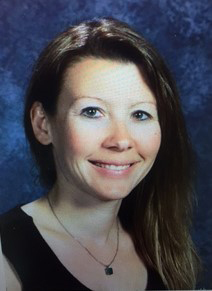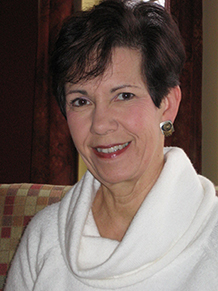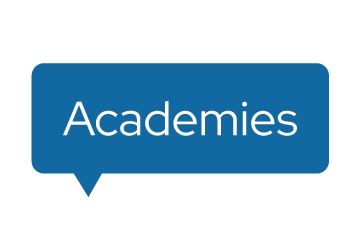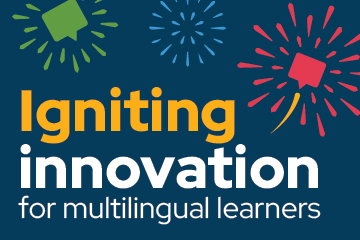Leading: Promoting equity for multilingual children and their families
What does it mean to be a leader committed to promoting equity for young multilingual children and their families? This month, the WIDA Early Years team continues the discussion started in the Early Years February 2021 Focus Bulletin, Promoting Equity for Young Multilingual Children and Their Families. The team addresses leaders working in the field of early care and education (ECE) at the state and local level and offers some insights informed by research and their personal experiences. This article highlights the voices of two ECE leaders from Michigan, a WIDA Early Years member state, who are actively promoting equity for the young multilingual children they serve. The article ends with some reflective questions and offers a few suggested next steps.
Leading
The term leading is intentionally used in this article because promoting equity requires ongoing reflection and action. There is not an end to this work. The team considers promoting and leading for equity an action that anyone can strive towards, whether or not they have a formal title or role as a “leader”. There are many interconnected parts involved in leading. This article focuses on two that the team considers essential.
Personal commitment to learning
Promoting equity for multilingual children requires leaders to make a personal commitment to learning. The WIDA Early Years team believes that self-reflection on personal beliefs about language and culture can be a valuable first step in repositioning oneself as a learner. For instance, deficit-oriented beliefs around multilingual children’s language and cultural practices continue to permeate ECE settings and this can lead to inequitable conditions for multilingual children that could negatively impact their learning (e.g., Espinosa, 2020). Ofelia García (2020) calls on educators to make the conscious decision to unlearn deficit-oriented beliefs about the language practices of multilingual learners, and relearn more asset-oriented beliefs and the practices needed to promote children’s dynamic language practices.
Leaders’ beliefs about language and culture can shape the policy they write, the guidance they offer, the practices they prioritize and promote, and even the resources they allocate to support multilingual children and families in their program(s). Repositioning oneself as a learner also calls on leaders to have ongoing interaction and communication with the families they serve and to visit programs and classrooms to personally witness the many things multilingual children can do with language to demonstrate their learning and explore their environment.
Leading for collaboration
In the team’s experience, leading for equity also requires leading for collaboration. ECE leaders cannot promote equity for multilingual children on their own – no one can. In Advancing Equity in Early Childhood Education (2019), the National Association for the Education of Young Children (NAEYC) recommends ECE leaders establish collaborative relationships with diverse stakeholder groups in order to “Support and give voice to diverse perspectives to strengthen the network of resources available to all children and families.” (p. 9) We strongly encourage leaders to carefully consider how they are building true relationships or partnerships with others who share the responsibility of caring for, instructing and serving multilingual children. This can include families, community organizations and advocates, and other ECE professionals.
Leading for learning is vital to leading for collaboration. Collaborating with others to promote equity for multilingual children calls on leaders to learn from those impacted by inequities in order to better understand the changes needed. For instance, when building relationships with families of multilingual children, it is essential for leaders to respect them as experts, and together make decisions around programming and services needed to provide equitable learning opportunities for their children.
Here are some ways two Michigan ECE leaders are promoting equity for multilingual children and their families.
 State Level Leader
State Level Leader
Shanon Everett is an early literacy and family engagement consultant with the Office of Great Start, Early Childhood Development and Family Education at the Michigan Department of Education (MDE). Here are some leading steps Shanon has engaged in.
Learning
“I considered my own linguistic background and reflected on my experiences working with children and families in Head Start. I thought we had a great system for working with multilingual families. We had interpreters, which is more than many schools or programs have. However, we could have done more to integrate the cultures of families we were serving to create a more welcoming environment for those families.
During steering committee meetings, it has been beneficial for me to hear perspectives of multilingual members of our committee. This helps those of us who are monolingual have a better understanding of the supports needed. We have only been meeting since January and already we are feeling comfortable to share our thoughts with one another, but it took some time in getting here.
I have made a more conscious effort in using the correct terminology when referring to multilingual children and families. There are so many different terms, which can be confusing. So, at the state level, we are working on using the term multilingual consistently when referencing preschool age children and their families who speak more than one language.”
Collaborating
“[We] created a state-level WIDA Early Years steering committee, intentionally including members from higher education, English learner (EL) staff from independent school districts’ (ISD), early childhood directors from ISD’s, home visiting specials, childcare specialists as well as MDE staff.
[We] reviewed professional learning cohort applications to ensure we had adequate representation throughout the state that included staff from ISDs who work with state-funded preschool and EL, Head Start education specialists, and higher education professors.
[We are] establishing a partnership with Great Start to Quality (which houses Michigan’s QRIS system as well as provide trainings to licensed childcare providers in their regions). The goal is to have trainers available in each region across the state for childcare providers.”
 Local Leader
Local Leader
In her role as an ESL/bilingual consultant facilitating professional development, Cathy Ferguson has engaged in the following leading steps.
Learning
"[I am] exploring the concept and implementation of assets-based thinking and language when planning and facilitating professional learning for others, in order to promote equitable educational practices for multilingual children.
Finding new ways to replace commonly used negative terms like “at risk,” “they have no English,” “low SES,” and “parents can’t help” is challenging for all of us, but I can see the need to do this in order to create an equitable, positive learning environment. As someone who has worked with multilingual learners of all ages, for all of my years in education, I will add this critical piece to any professional learning opportunities that I plan in the future.
[I am] looking at my own funds of identity and funds of knowledge. Once I understood those concepts, I can show others how to examine their own funds, and then the funds for their children and families.”
Collaborating
“[I am] participating in WIDA Early Years Essential Actions III: Training of Trainers, adding to my own self-knowledge, and to my professional knowledge related to young multilingual children. I now have so many resources, and so many colleagues for the work ahead. It is a challenge that I truly embrace.
[I am] planning and facilitating professional learning opportunities for ECE program staff in our southeast Michigan area, and in the state.
[I am] collaborating with
- leaders of the local English as a Second Language (ESL) Program, Head Start, Great Start Readiness Program (GSRP), and tuition based PreK classes for that district
- ESL consultants for Oakland County to provide additional professional learning in the county based on needs assessments for individual programs
- Other statewide trainers and state level leaders
[I am] seeking out resources and people to help grow my knowledge and understanding about the linguistic and cultural practices of the multilingual children who attend the ECE programs where I will facilitate professional learning. Note: The multilingual population in our state is very diverse; in our county alone, we have over 100 languages, and over 13,000 identified ELs.”
Leading is an ongoing action. So how might you take action? The WIDA Early Years team invites you to engage in learning by asking yourself the following:
What am I doing with regard to my personal professional learning? How have I critically explored
- my linguistic and cultural background, experiences, beliefs and practices?
- how I value and build upon the linguistic and cultural wealth the multilingual children bring to my program?
- the way I speak about the multilingual children, families and communities I serve?
How am I leading to engage and collaborate with others focused on equitable learning opportunities for multilingual children?
- Who is currently in my collaborative circle, and, more importantly, who is not? How might I engage with new colleagues, educators, families or community members?
- What steps have I taken/or will take to invite those who touch the lives of multilingual children to collaborate with me around promoting equity?
- What cultural and linguistic barriers have I addressed/might I need to address to ensure families of multilingual children have equitable opportunities to collaborate with me?
- How else might I engage in collaborative learning to provide equitable opportunities for multilingual children to language and learn?
Consider and plan a next step. Here are a few suggestions to get you started.
- Read Promoting Equity for Young Multilingual Children and Their Families.
- Explore WIDA Early Years resources, such as the new tools for promoting early language development.
- Connect with a collaborative partner to explore and learn together.
- Craft your personal values, belief statements and guiding principles around this work.
- Visit neighborhoods and early care and education settings in the communities you serve.
References
Espinosa, L. M. (2020). Addressing equity in the ECE classroom: Equal access and high quality for dual language learners. In J. Jones (Ed.), Getting it right: Using implementation research to improve outcomes in early care and education (pp. 131–151). Foundation for Child Development.
Esteban-Guitart, M., & Moll, L. C. (2014). Funds of identity: A new concept based on the funds of knowledge approach. Culture & Psychology, 20(1), 31-48
García, O. (2020). The education of Latinx bilingual children in times of isolation: Unlearning and relearning. MinneTESOL Journal, 36, (1).
Gonzalez, N., Moll, L. C., & Amanti, C. (2005). Funds of Knowledge: Theorizing practices in households, communities and classrooms. Lawrence Erlbaum Associates Publishers.
National Association for the Education of Young Children (NAEYC). (2019). Advancing equity in early childhood education: A position statement. NAEYC.
About the authors
Demetria Joyce is a state relations specialist whose work includes serving as a primary contact to WIDA Early Years member states and assisting states in the planning and roll-out of Early Years products and services.
Patricia Blanco a professional learning specialist with WIDA Early Years. Her work focuses on designing and facilitating professional learning opportunities for educators who work with young multilingual children and their families.





